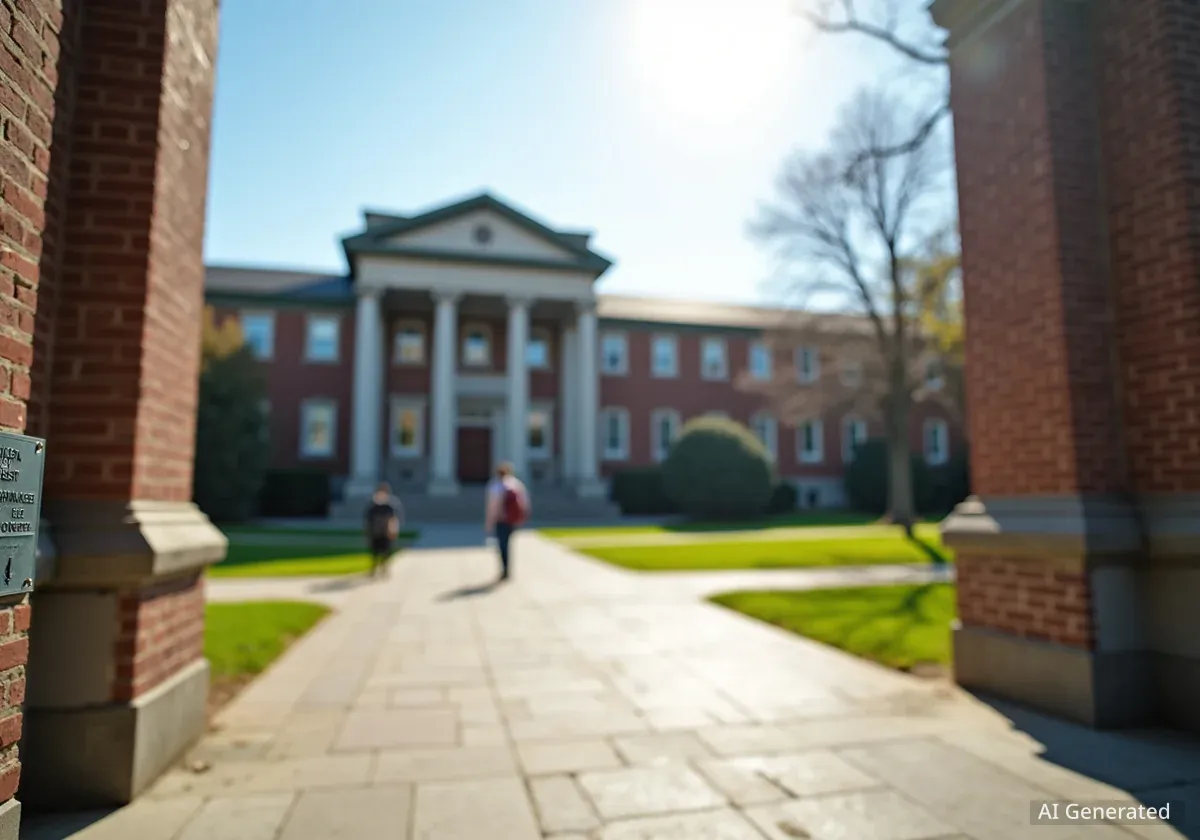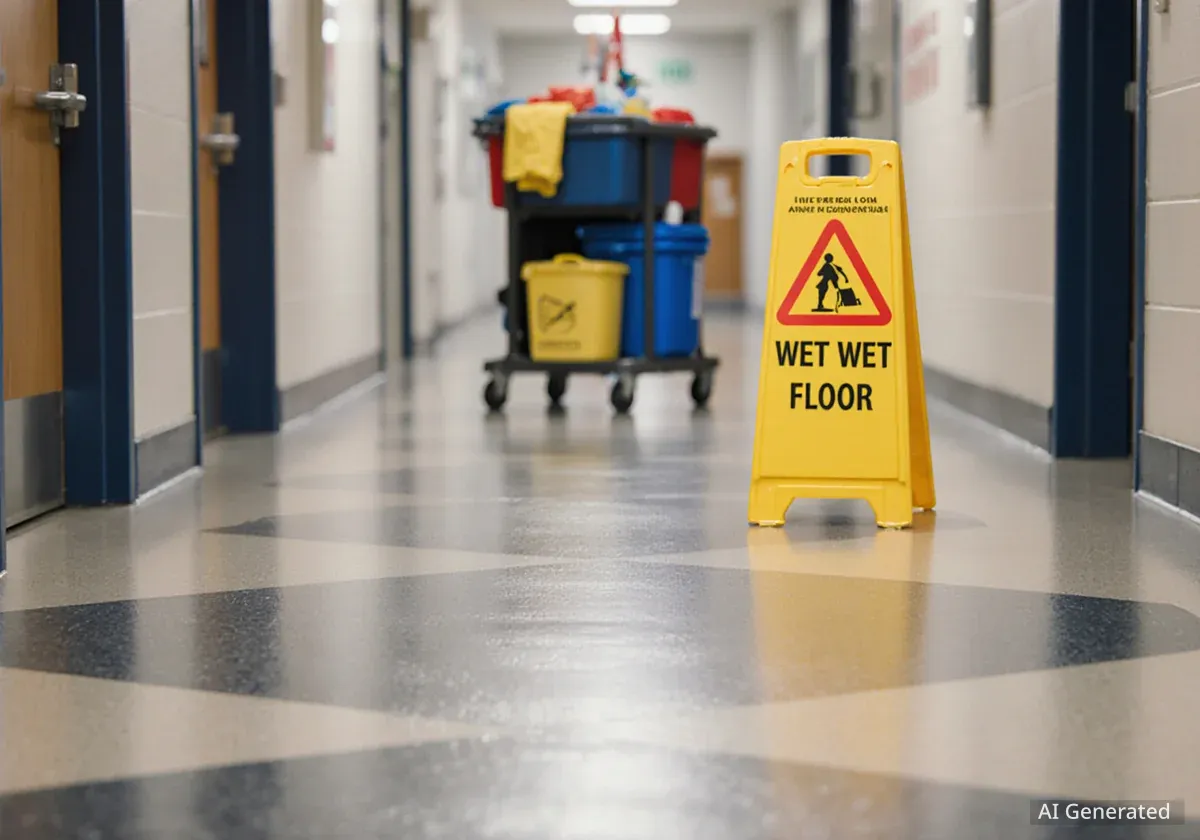Florida A&M University is formally seeking inclusion in a major academic health center agreement between Florida State University and Tallahassee Memorial HealthCare. The university's Board of Trustees has voted to request a 30-day extension from the city of Tallahassee on the hospital deal, aiming to secure formal representation and protect its own health programs.
Key Takeaways
- FAMU's Board of Trustees unanimously voted to ask the city of Tallahassee for a 30-day delay on the FSU-TMH hospital deal.
- The university is negotiating for formal representation, including seats on the future hospital's governing and advisory boards.
- Discussions between FAMU and FSU are underway, with FAMU's president describing FSU as a "willing partner."
- Historical context, including the closure of FAMU Hospital in the 1970s, is a significant factor in the community's call for FAMU's inclusion.
FAMU Board Takes Formal Action
Florida A&M University's Board of Trustees has taken a decisive step to ensure its involvement in the future of healthcare in Tallahassee. During a special meeting on October 10, the board voted unanimously to request that the city of Tallahassee postpone a final vote on the FSU-TMH hospital agreement.
The requested delay of up to 30 days is intended to provide FAMU with the necessary time to negotiate and formalize its partnership role with FSU. The city is scheduled to hold a public hearing on the matter on October 22, with a potential final vote on November 19.
Negotiating for a Seat at the Table
The core of FAMU's request is securing direct representation in the new academic medical center's governance structure. University officials have proposed adding FAMU representatives to all critical committees.
"To sustain meaningful collaboration, FAMU must have a seat at every table where decisions are made," stated Donald Palm, FAMU's Executive Vice President for Health Sciences Enterprise and Research Innovation. "That includes formal representation on the governing, advisory and strategic committees that guide the academic health center's operations."
Recent exclusive meetings between FAMU and FSU officials have focused on this issue. According to reports, a proposal for a three-way Memorandum of Understanding (MOU) is being considered. The current MOU between FSU and TMH only mentions FAMU once and outlines a 17-member board where TMH would hold a single-member majority over FSU.
Background on the FSU-TMH Agreement
The agreement involves Florida State University acquiring city-owned assets currently used by Tallahassee Memorial HealthCare, valued at over a billion dollars. This move would create a new academic health center, transforming healthcare delivery and medical education in the region. The city commission holds the final authority to approve the sale of these assets.
A Willing Partner and Ongoing Discussions
Despite the complexities of adding a third party to the extensively negotiated deal, FAMU President Marva Johnson expressed optimism about the discussions with FSU. She confirmed that she, along with FAMU board vice chair Michael White, had met with FSU leadership to discuss the historically Black university's role.
"The good news for our team is that we have a willing partner,” Johnson said, referring to FSU. “They are really interested in making sure that we are together in advancing our health care programs for the region.”
Michael White emphasized the broader goal of the collaboration. "The bigger conversation is not just about how FAMU will preserve its legacy and continue to build its programs, but how do we provide the best care to the citizens of Tallahassee?" he said. "I believe that us having a seat at the table does provide those opportunities."
Historical Context and Community Concerns
The push for FAMU's inclusion is deeply rooted in Tallahassee's history. Community leaders have voiced concerns stemming from the closure of FAMU Hospital in the early 1970s. The hospital served the Black community during segregation and was effectively the city's first academic medical center.
After Tallahassee Memorial HealthCare integrated, it took over FAMU Hospital, which was later closed after state funding was cut. This loss remains a painful memory for many in the community and fuels a desire to ensure FAMU's legacy in healthcare is protected and advanced.
Legacy of FAMU Hospital
FAMU Hospital was one of two hospitals in Tallahassee during segregation. Its closure in the 1970s is cited by community members as a significant loss. Referencing this history, FAMU board chair Deveron Gibbons noted the university's historical position as a model for medical excellence.
Community figures, including City Commissioner Dianne Williams-Cox and Rev. R.B. Holmes of Bethel Missionary Baptist Church, have been vocal supporters of including FAMU in the new structure. Rev. Holmes has described the potential sale of TMH assets to FSU without FAMU's involvement as "premature" and "dangerous."
Protecting FAMU's Programs and Independence
A primary concern for FAMU's trustees is the protection of the university's established and respected health programs, including its schools of pharmacy and nursing. There is a strong desire to prevent these programs from being absorbed or diminished within a new, larger entity.
"When we talk about shaping the next era of the North Florida region, FAMU's role is not optional – it is essential,” said FAMU board chair Deveron Gibbons. He stressed that any partnership must honor the university's legacy and protect its independence.
FAMU trustee Belvin Perry echoed these sentiments, highlighting the need for caution in partnerships. "While I'm a firm believer in partnerships, we have to make sure there's no way that we can be subdued and our independence taken away from us," Perry stated. He also suggested an investigation into promises made to the university when its original hospital was closed decades ago, a task FAMU's legal counsel is now undertaking.
As negotiations continue, FAMU leadership aims to finalize a partnership framework that solidifies its role, ensuring the university is not an "afterthought, but as a valued partner" in the evolution of regional healthcare.





